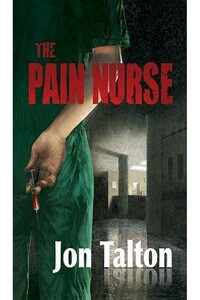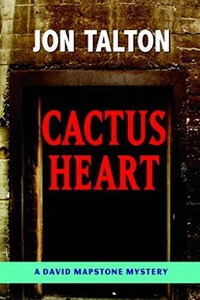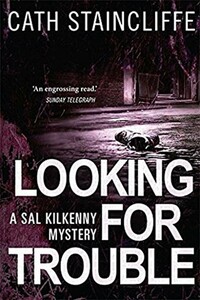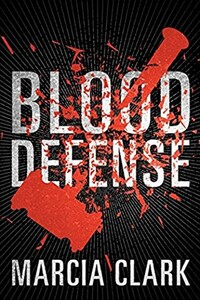South Phoenix Rules | страница 62
This one proclaimed its name in red letters across the plate glass, promising yerbas medicinales de todo del mundo y articulos religiosos. Herbal remedies from around the world and religious articles. We walked in to the sound of a long electronic beep, a sweet scent, and found a typical yerberia: long counters backed by floor-to-ceiling shelves of colorful devotional candles, and containers and bottles of all shapes and sizes. Incense was burning in a metal box at the feet of a statue of Jesus.
“This is amazing!” Robin said.
A woman about my age with long black hair and a white blouse ran to Peralta and gave him a hug. Magdalena was the owner, apparently, and introductions were made. She and Peralta conversed in rapid-fire Spanish, of which I could make out about every third word. I heard “pall of death,” but realized they were talking about the Phoenix economy. Which was true enough: a city that lived by real estate and low-wage jobs was now slowly dying. Her sons and nephews had worked in construction and now they couldn’t find any work. Her daughter had bought four rental houses during the boom and had now lost them all to the bank. She asked Peralta if he wanted a tarot reading and he declined.
“Then come on back,” she said. “They’re waiting.”
We followed her through a door into a small office with cinder-block walls painted baby blue. One man was seated behind a desk and another lounged on a sofa.
“El sheriff!” The man behind the desk came around and shook Peralta’s hand with both of his. He was middle-aged and thickset, with short hair, prominent eyebrows, and a faded Mexican eagle tattoo poking out beneath the sleeve of one arm. Again, a long exchange in Spanish, the vowels colored with warmth.
“An old friend?” Robin asked.
Peralta leaned his head toward us. “I put him in prison for ten years.”
“And it was the best thing that ever happened to me!” The stocky man shook our hands and said his name was Guillermo Gris. “But call me Bill.”
The man on the sofa slowly stood and put his hands on his hips. He was my height, six-two, and his broad shoulders tapered into a slender waist. He was darker than Bill, with an unlined face, and hair so black it had a shine. He wore a blue blazer over jeans and a light-blue shirt.
“Sheriff Peralta.”
Peralta said, “It’s good to see you again, Antonio.” There was less warmth here, unlike with Bill. They spoke to each other respectfully, in businesslike voices.





